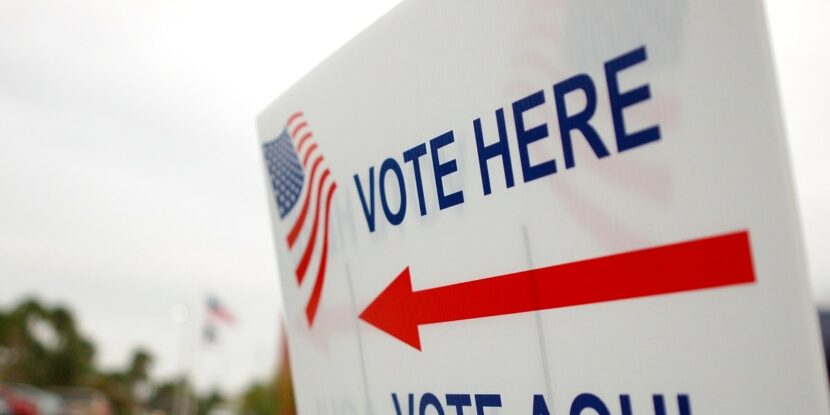With just over 100 days to go before election day, what’s the state of the battleground Senate races?
The party which controls the White House usually loses seats in Congress in the first midterm after the presidential election. This year is unique in that Republicans could be poised to lose seats in the House while gaining seats in the Senate due to a highly favorable electoral map. There are 10 Senate Democrats up for re-election in states President Trump carried in 2016. Republicans are hoping to hold all their seats in the Senate and pick off a few Democrats for a net gain.
Here’s a look at the polls in the battleground states.
West Virginia
Republican Attorney General Patrick Morrissey is running against incumbent Democrat Sen. Joe Manchin, a former governor vying for his second full term in the Senate in a state Trump won by over 40 points. Manchin is the last relatively-conservative Democrat in the Senate, and he has fooled West Virginians into thinking he is pro-life even though he votes for taxpayer funded abortion. The RealClearPolitics average of recent reliable polls shows Manchin holding a 7-point lead over Morrissey. I would expect that gap to narrow considerably as we get closer to election day.
Florida
Incumbent Democrat Sen. Bill Nelson is neck-and-neck with current Republican Governor Rick Scott, with Scott holding a 1-point lead according to RCP. Scott is a popular governor with personal wealth to fund a strong campaign. Incumbents usually have a big polling advantage in the summer due to name recognition. If Nelson is already trailing Scott more than 3 months from election day, he’s in serious trouble.
Missouri
GOP Attorney General Josh Hawley is a candidate straight out of central casting for Republicans — young, attractive, articulate, and conservative. He’s already running a strong race against incumbent Democrat Sen. Claire McCaskill, who is too left-wing for this Midwestern state. She holds only a 1-point edge in the RCP average, and as with Nelson, if she is already virtually tied in the polls with her challenger, she’s in big trouble.
Indiana
There’s only been one poll in Indiana, where businessman Mike Braun won the Republican primary in an upset to challenge incumbent Sen. Joe Donnelly. Donnelly is another Democrat who tries to paint himself as a blue-dog conservative, but he has a lefty voting record. The only poll shows Braun with a 1-point lead. Indiana is a solidly red state, except for its vote for Barack Obama in 2008, and Braun is a strong candidate. Though there are few polls, this seems like Braun’s race to lose.
North Dakota
Incumbent Sen. Heidi Heitkamp is another far-left Democrat whose record is out of step with her red state. Her challenger is Congressman Kevin Cramer, the at-large representative for the state. He is a strong challenger because he has already won a statewide race in North Dakota (since it only has one House district) and thus has high statewide name recognition. There has only been one recent poll, and it shows Cramer leading by 4. The same rule applies: If the incumbent is trailing this far out, she’s in trouble.
Montana
Incumbent Democrat Sen. Jon Tester is facing a challenge from Republican state auditor Matt Rosendale. Despite his voting record, Tester remains a relatively popular figure in his state. However, Rosendale has already won a statewide race in Montana for auditor. A June poll showed Tester leading by 8, and a July poll showed him leading by 3. This one will be tight.
Ohio
This race is going to be tougher than Republicans hoped. After their premier candidate, State Treasurer Josh Mandel, dropped out of the race due to his wife’s health problems, Congressman Jim Renacci won the primary and is considered a weaker candidate. Incumbent Democrat Sen. Sherrod Brown is a far-leftist, but he has maintained a populist streak that plays well in the state. Several polls taken in June showed Brown with a double-digit lead. This one will probably tighten, but it will be tougher to knock out Brown than initially thought.
Pennsylvania
This state swung to Trump in a surprise vote in 2016, but it’s still an open question whether the traditionally blue-leaning Pennsylvania is turning red. Indications are that it will remain light blue. Incumbent Sen. Bob Casey, another fake conservative Democrat, holds a double-digit lead over Republican Congressman Lou Barletta. But this one should narrow too if Barletta can increase his name recognition.
Nevada
Nevada Republican Sen. Dean Heller is one of the few incumbent Republicans in trouble this year. His centrist streak may not save him in this blue-leaning state, where a June poll showed him trailing Democrat Congresswoman Jacky Rosen by 4 points.
Other states
Democrats are drooling over Texas, hoping to unseat Sen. Ted Cruz, but barring a major upset Cruz will win comfortably. Republicans are also expected to hold Arizona, where Sen. Jeff Flake is retiring. The Republican primaries in Michigan and Wisconsin have not been held yet, but depending on the candidates, they also may be in reach. Virginia looks to be a lock for Democrat Sen. Tim Kaine due to the major flaws of Republican Corey Stewart.
With just over 100 days to go, polls are looking good for Republicans in the Senate. As of now, it looks like the GOP will pick up at least two or three seats. But everything can change in an instant in politics, so it’s going to be an exciting three months.
Photo credit: Erik Hersman via Flickr, CC BY 2.0


